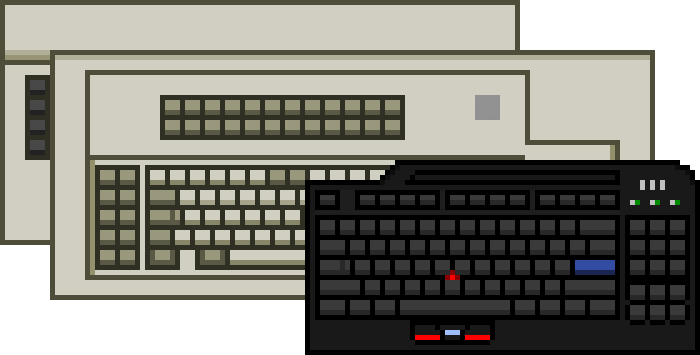P/N 41K6963 - Model M-e ANPOS Keyboard Details & Specs
Provided by the ASK Keyboard Part Number Database
IBM PS/2 ANPOS Keyboard with Integrated Pointing Device
| Type | "Model M9-e" PS/2 ANPOS Keyboard |
|---|---|
| Nickname | M9-e |
| OEMs or ODMs | XSZ |
| Keyswitches | IBM buckling sleeves (early or late POS type) |
| Earliest appearance | |
| Original keycaps | PBT with pad-printed legends |
| Cover colour | Iron Grey |
| Branding | IBM black oval badge |
| Feet | None |
| Protocol | IBM Mode 2 (scancode set 2) |
| Connection | Black straightened-style detachable 8-pin SDL to dual 6-pin mini-DIN PS/2 cable |
| Number of keys | 116 |
| Form factor | Full-size |
| Layout & language | US English |
| Accessories & other features | Magnetic stripe reader Manager's keylock |
| Sources | Doc: IBM Point of Sale Options and I/O Devices Service Guide DRAFT (#GC30-9737-01) [source: IBM] |
| Data last updated |

